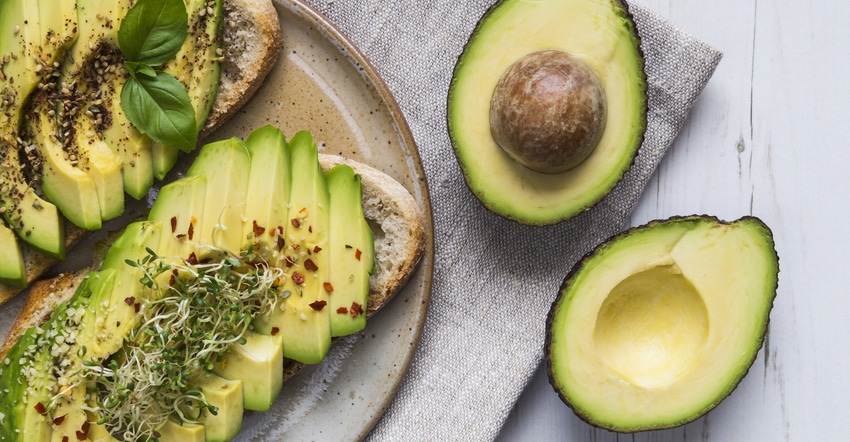People who added an avocado to their diet each day lowered their LDL cholesterol levels, but didn’t see a drop on the scale, a new study reported.

Eating an avocado every day may help lower low-density lipoprotein (LDL) or “bad” cholesterol levels, according to a new study (JAHA. 2022;0:e025657).
Avocados are packed with vitamins and minerals, antioxidants such as lycopene and lutein and healthy monounsaturated and polyunsaturated fats. As such, avocados have been dubbed a superfood and, in recent years, have attracted widespread attention from consumers. In fact, avocado consumption reached record heights in 2021, propelled by consumer demand, sustained retail sales and increasing foodservice activity.
Avocados’ popularity can be attributed, in part, to its healthy halo. The present study, published in the Journal of the American Heart Association, builds upon previous research supporting avocados’ potential to reduce visceral fat—abdominal fat that surrounds the organs. High amounts of visceral fat are linked with higher risk of health conditions such as diabetes and cardiovascular disease.
The study, dubbed the Habitual Diet and Avocado Trial (HAT), a multicenter, randomized, controlled parallel‐arm trial, compared dietary changes—either adding one large avocado per day to a person’s existing diet or following a habitual diet—to assess the impact on visceral fat. The study, which lasted six months and was conducted in people with an elevated waist circumference, also measured the effects of the diet changes on cardiometabolic disorders.
Did eating an avocado each day achieve the outcome of helping participants reduce visceral fat? The results showed overall diet likely plays a greater role.
“Consistent with prior observations, a change in dietary patterns rather than a single food or nutrient may be necessary to achieve clinically significant improvements in visceral adiposity and other cardiometabolic risk factors,” the researchers wrote.
Researchers, however, did point to a “modest but nominally significant” reduction in total and LDL cholesterol among avocado eaters. Overall diet quality also improved in the avocado-supplemented group, including an increase in fiber intake, which researchers said may be responsible for the cholesterol-lowering effect.
“There was a significant increase in fiber and the [healthy eating index] in the avocado-supplemented diet group compared with the habitual diet group and no significant effect on body weight, which remained stable during the intervention period in both groups,” researchers wrote. “The between‐group differences in total cholesterol and LDL‐C align with the observed dietary fiber differences between groups.”
Changes in the gut microbiota and the phytosterol in avocados also may have played a role in lowering LDL cholesterol levels as seen in the avocado group, researchers wrote.
Changes in body weight, BMI, insulin and other measures were similar between the habitual diet followers and the avocado eaters.
About the Author(s)
You May Also Like






